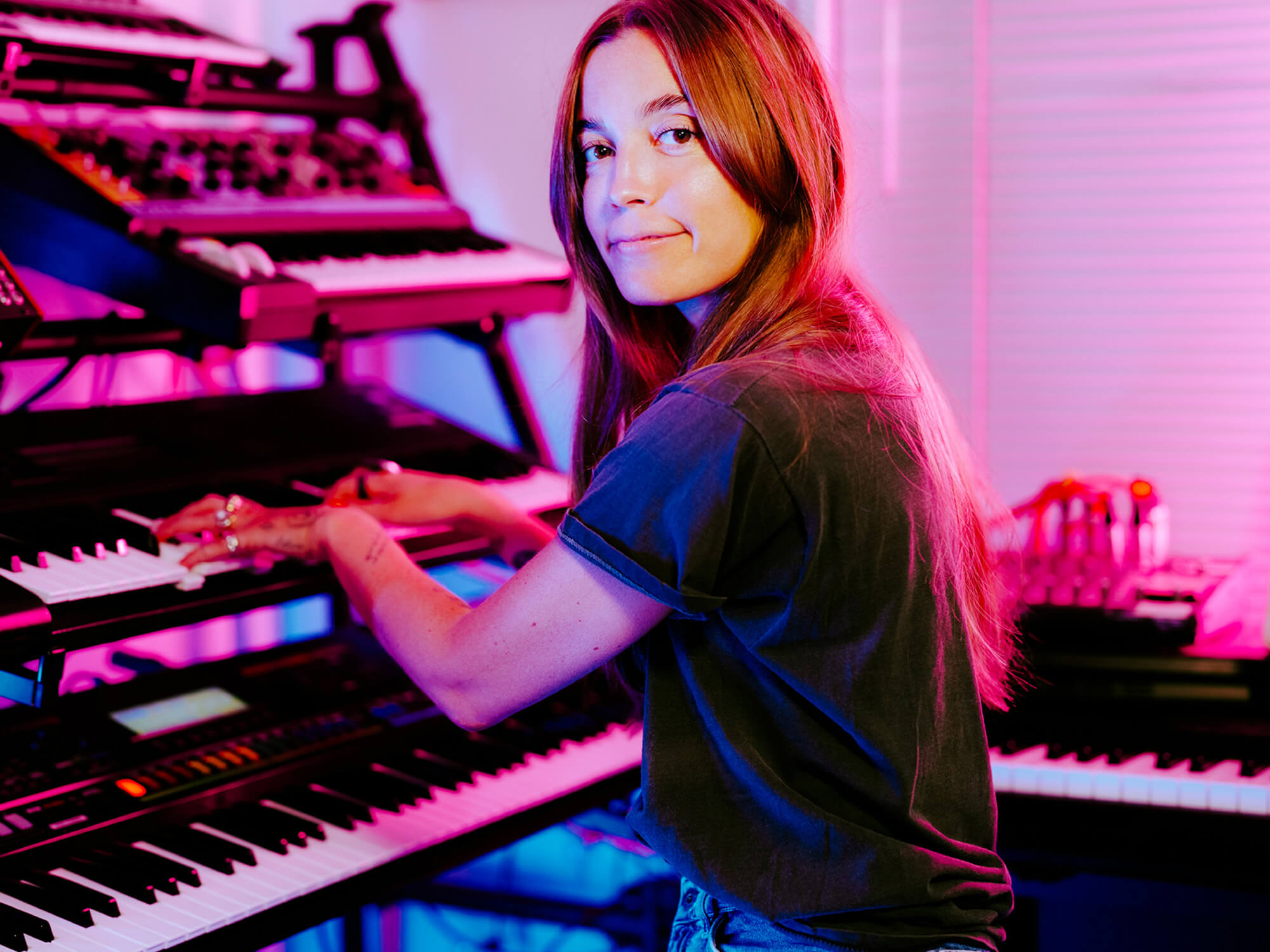
Light Place, Right Time: LP Giobbi is a beacon for budding artists
The FEMME HOUSE leader dives deep on her debut album, discusses the importance of building communities, and explains how unpredictable moments can shift one’s entire career.
LP Giobbi. Image: Ismael Quintanilla
This year, LP Giobbi, the DJ, producer, pianist, and leader of FEMME HOUSE, made her official Coachella debut – a monumental moment for any artist.
Except Giobbi was making her debut on the final day of the festival during one of the earliest slots: 2pm. Although she was playing the Yuma Tent, Coachella’s onsite nightclub that shields the crowd from the desert heat, in light of the notoriously quiet slot, she was doubtful that a sizable audience would show up – she even sent her team to scout the stage at the same time on the two days leading up to it.
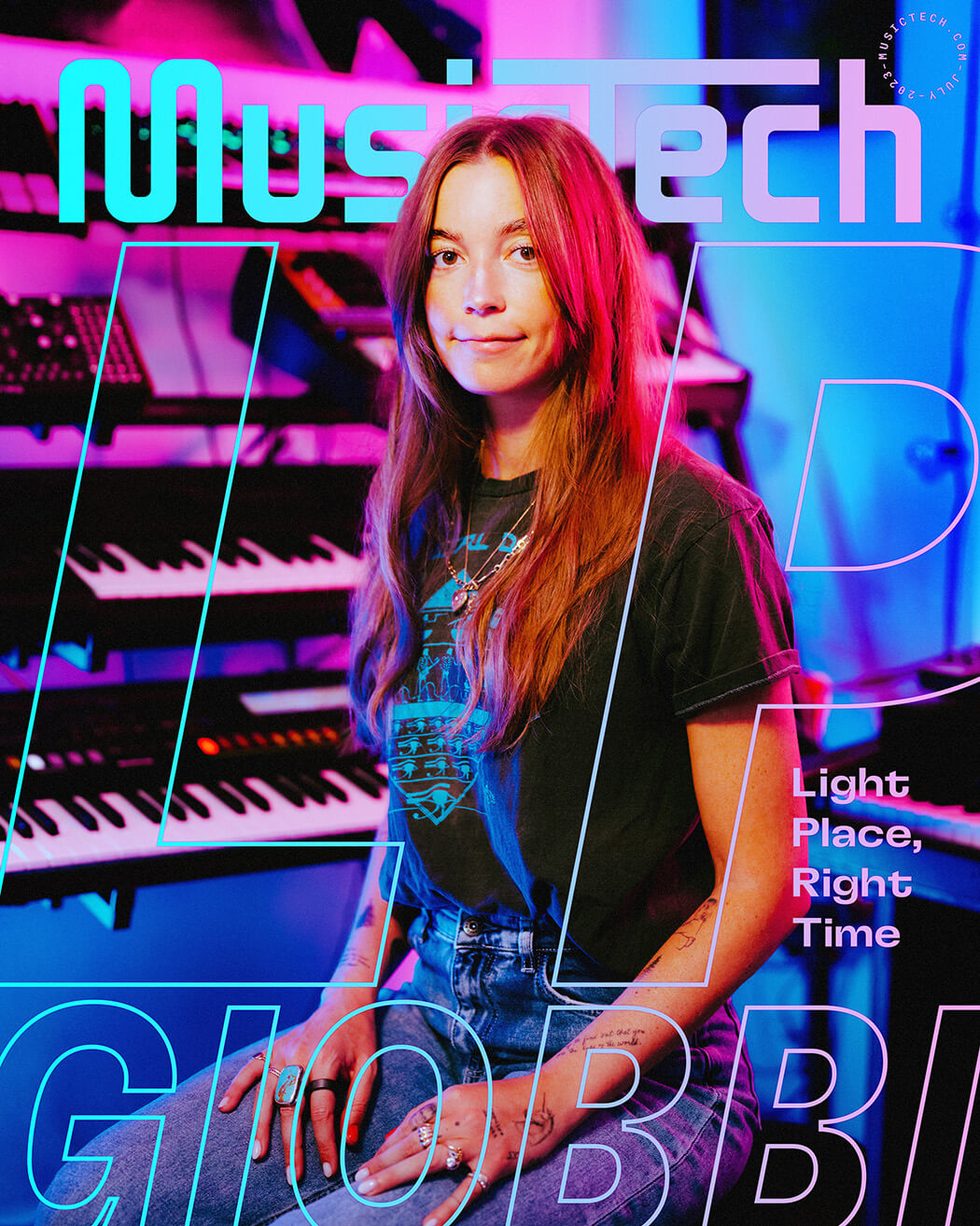
“They said there were 25-30 people [there], so I was expecting nothing,” Giobbi says.
However, upon arriving for her set, she was relieved to see so many of her closest friends waiting backstage to support her.
“They had all rolled themselves out of bed nursing their hangovers and got into the festival [to see my performance],” Giobbi says. “I thought, ‘A lot of the people who have supported me from the beginning are here. I’m just going to focus on my gratitude for all these true friends showing up for me.’”
As it turns out, Giobbi’s friends weren’t the only people who showed up. Instead of 25-30 people watching her on that Sunday afternoon, hundreds of people arrived to dance along with her playing live piano over a diverse pallet of electronic music. And by the time she was bringing in the rest of the set, the tent was completely full.
In that moment, she realised she was experiencing a shift in her career – and it was all thanks to that dreaded early set time.
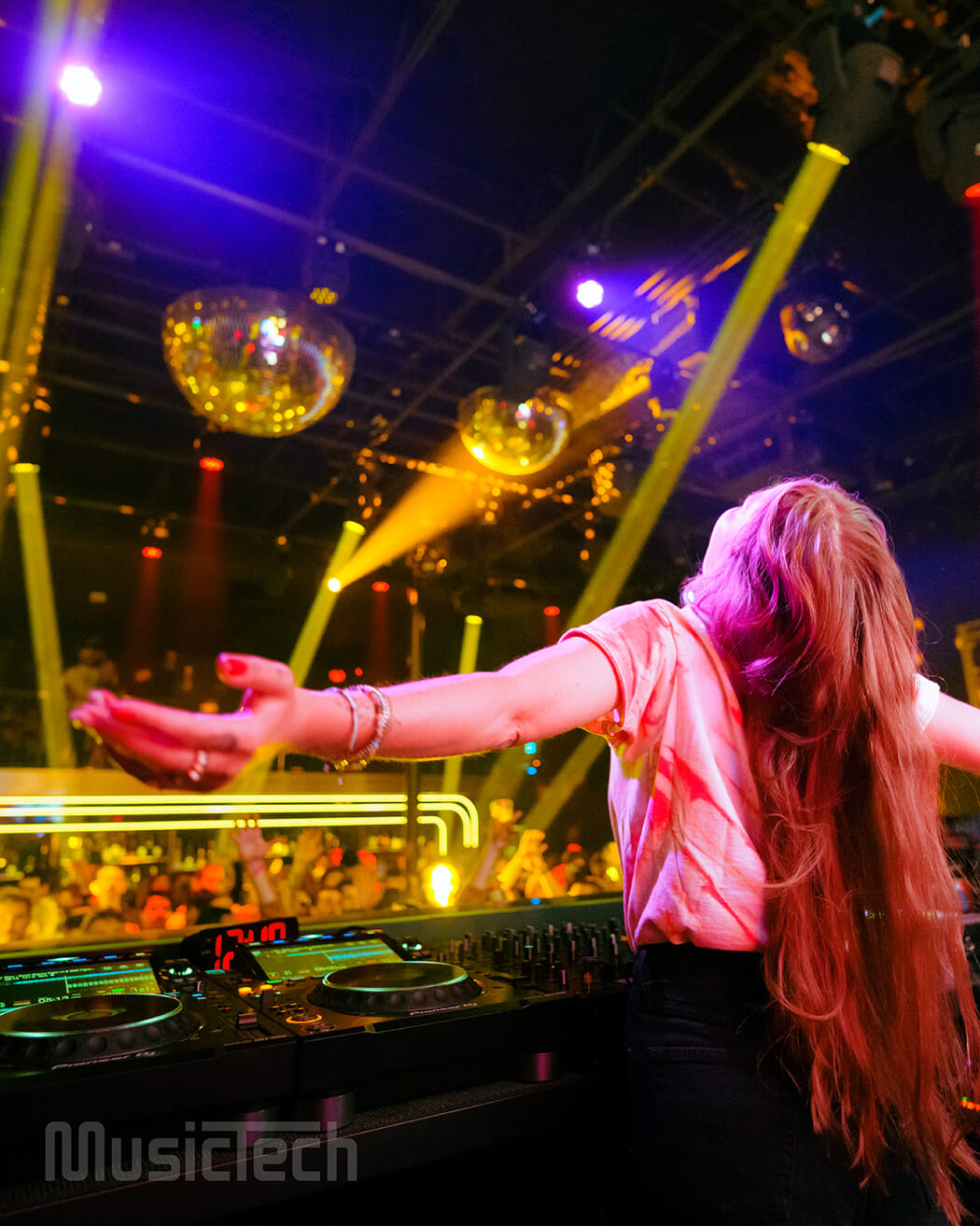
“It proved to the booker [for the stage] that it was all me. If I played at 5pm, it’s going to be rammed no matter what, but playing at 2pm turned out to be the best thing that ever happened to me,” Giobbi says.
At 2pm on the first Sunday of Coachella 2023, Giobbi was shown the light in the strangest of places. She just had to look at it right.
Grateful Dead fans like Giobbi (more commonly known as Deadheads) will recognise this lyrical reference from their 1974 classic, Scarlet Begonias:
Once in a while, you get shown the light
In the strangest of places if you look at it right.
From that lyric, Giobbi derived the name of her debut album, Light Places, out now on Ninja Tune’s imprint, Counter Records.
Giobbi fostered a love of the Grateful Dead through her parents, to whom the album is dedicated. Growing up, her father would present that lyric as philosophy.
“That’s an ethos that I’ve always tried to live by. If you keep your eyes open, you might find the light in the weirdest places,” Giobbi says. “I’m a seeker of Light Places.”
Just like that Sunday slot at Coachella, Giobbi has found herself in the right place at the right time all throughout her life, even if it didn’t seem like it at first.
Giobbi made time to speak to MusicTech between Coachella weekends at W Hotel in Hollywood – she’s been the hotel brand’s North America music director since 2019. Later that night, she’ll play support for electronic music artist and Ninja Tune label-mate Yaeji at LA’s Novo Theater, and right after this conversation, she has another interview.
Such a packed schedule has been the norm for Giobbi for well over a year. From playing piano with a full orchestra for Pete Tong’s Ibiza Classics in London, to performing at major festivals like Tomorrowland in Belgium, to DJing afterparties for Dead & Company’s final tour, Giobbi has been non-stop around the world.
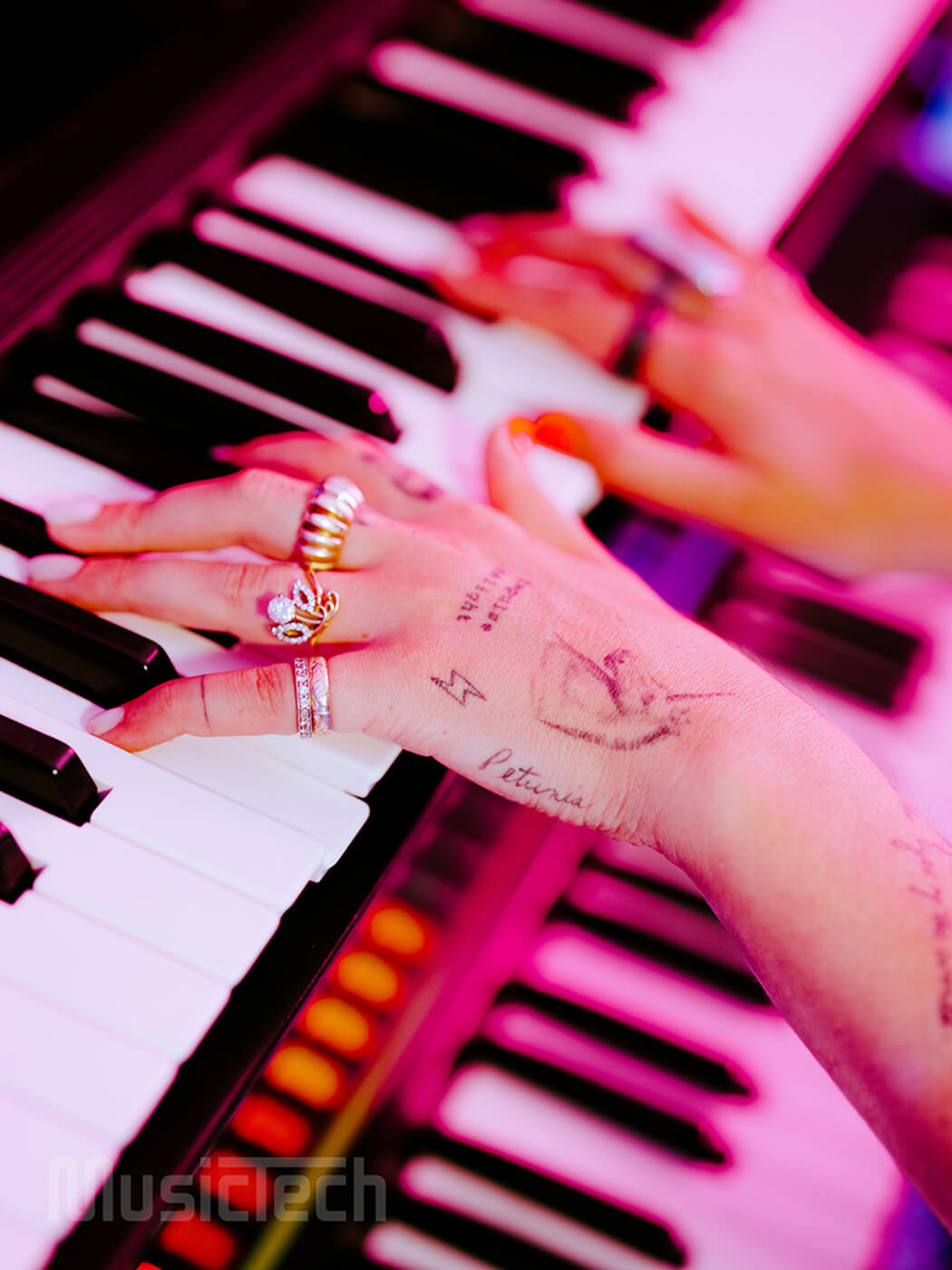
And while she was waiting in airports and riding trains to the next place, she was writing her album using Ableton Live stock plugins, a pair of Sony WH-1000XM4 headphones, and an Akai MPK MIDI keyboard.
“There’s this idea that you need to spend a lot of money on gear and I want to demystify that,” Giobbi says. “You really don’t need shit.”
Her work ethic is unshakable, and she credits herself for everything she’s achieved. But Giobbi also expresses immense gratitude to Light Places – to being in the right place at the right time – and for the circumstances in which she feels blessed to have found herself.
One of the circumstances in which she feels most blessed to have found herself has persisted, literally, throughout her entire life.
“My parents are the greatest people and parents on Earth,” Giobbi says.
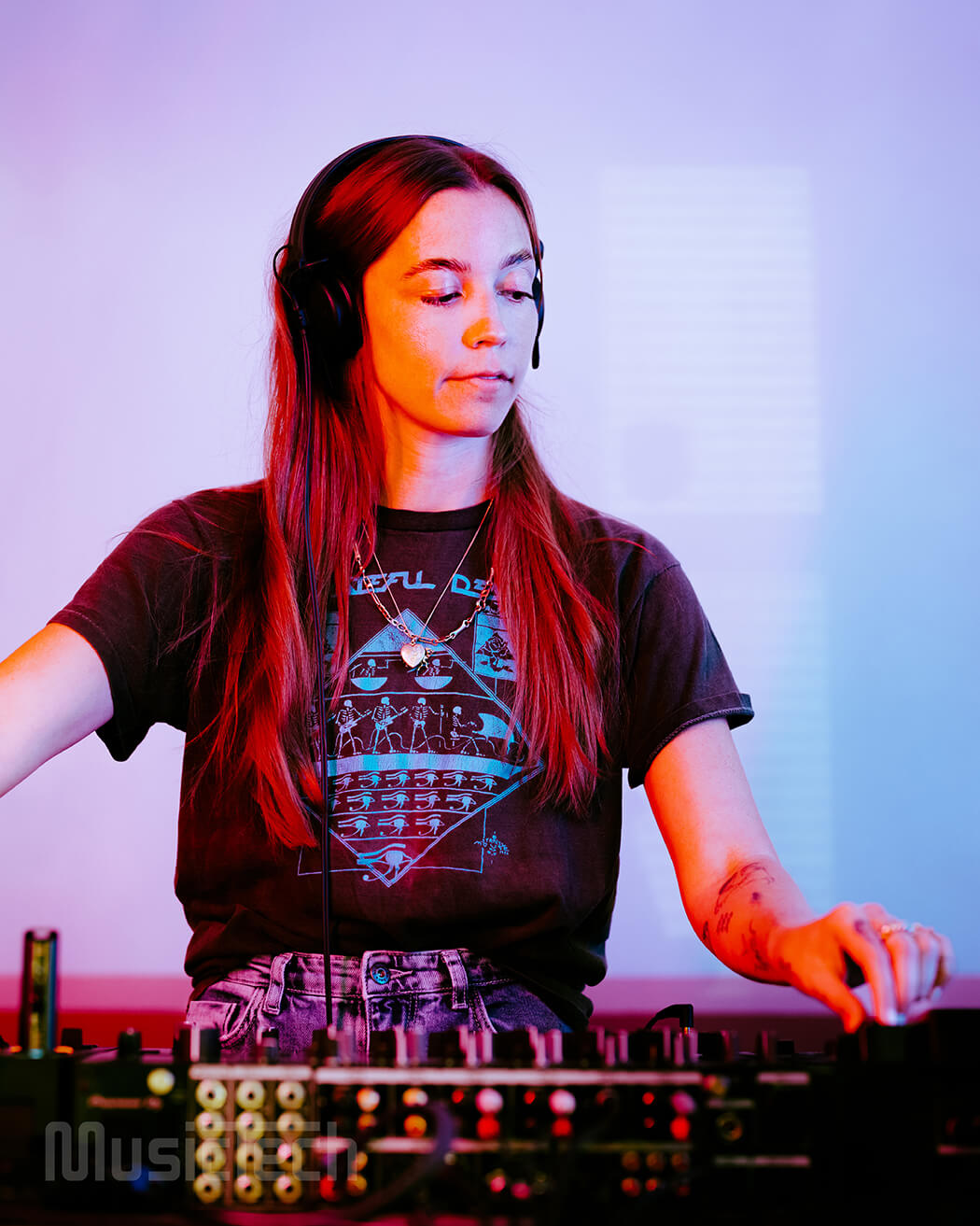
More than supporting her on a practical and emotional level – from when she “steamrolled” them into giving her piano lessons in second grade to trading lines of poetry back and forth while she was on tour in Australia – Giobbi’s parents endowed in her the philosophies that drive her forward.
In fact, Giobbi credits a specific conversation with her mother as her core inspiration for pursuing a career as an artist.
Initially, Giobbi was unsure that such a career path, which she admits is “sort of all about yourself,” would bring about the positive change that she wanted to make in her lifetime. But her mother showed her the true power artists hold.
“My mom sat me down and said, ‘Going to the Grateful Dead shows with your father gave me three hours of joy and happiness, and that allowed me to go back and interact with my life with a lot of peace and a lot of beauty’,” Giobbi says. “‘What you’re bringing to people if you’re coming at it with your open heart – that is important work.’”
Giobbi has since dedicated her life to that important work. Spreading joy and happiness through live music, the same way the Grateful Dead spread it to her parents.
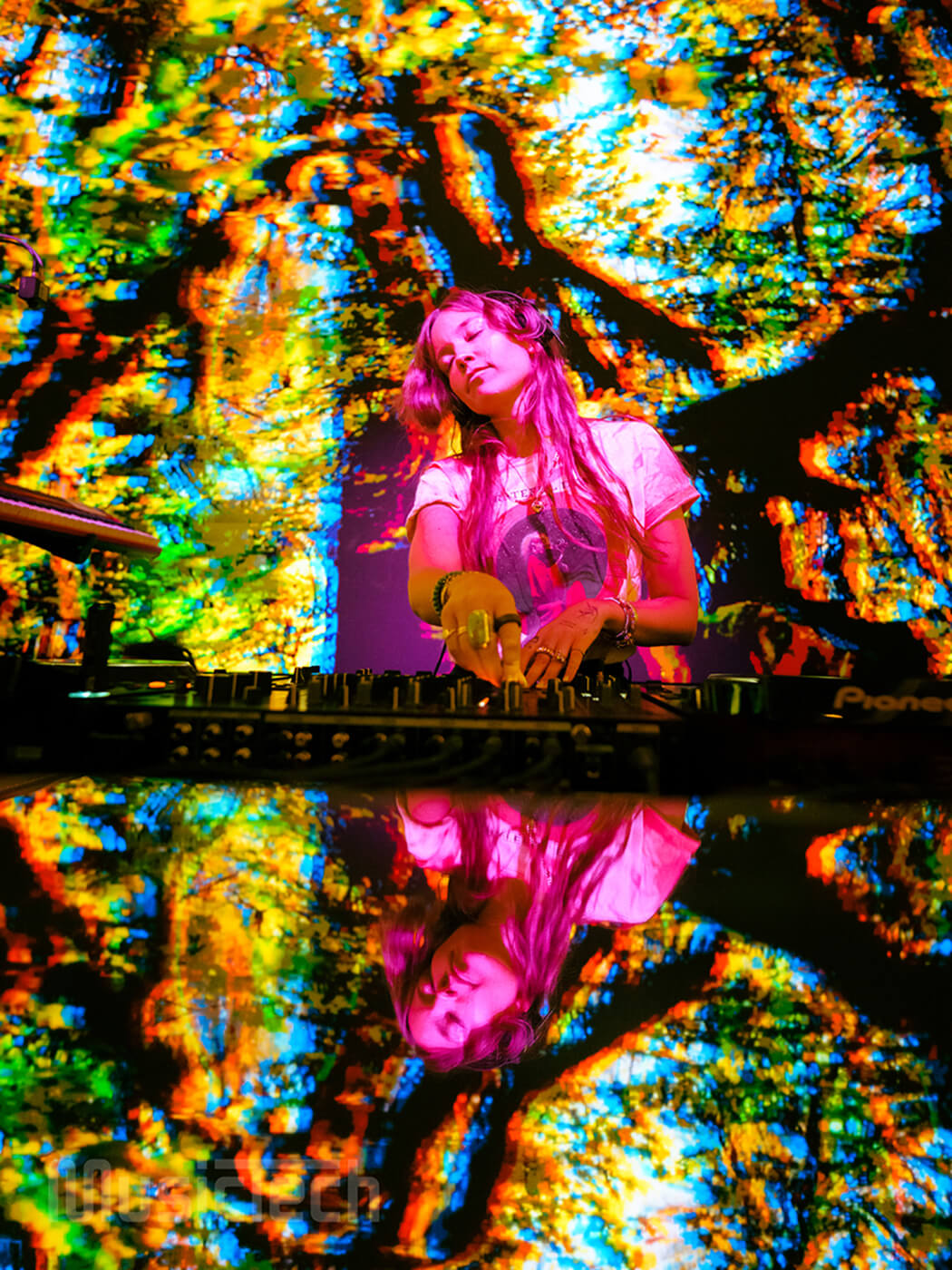
But before she could spread that light across the globe, she would find herself in a few more Light Places, one of which was the studio of her piano teacher, Carolyn Horn.
Giobbi gets teary as she discusses Horn’s indelible influence on her. Days before the interview, she, unfortunately, passed away.
At first, it was unlikely the pair would work together. Giobbi’s parents first contacted Horn about piano lessons for Giobbi when she was a few years younger than Horn’s usual students, but Horn met with Giobbi anyway. At first to recommend another teacher, but when they came together…
“Our souls just sparked. They united. She is the greatest,” Giobbi says.
Horn would go on to teach Giobbi how to play piano, working with her to master arduous pieces like the 26-page Grieg Piano Concerto, but on a deeper level, Horn taught her to believe in herself without compromise.
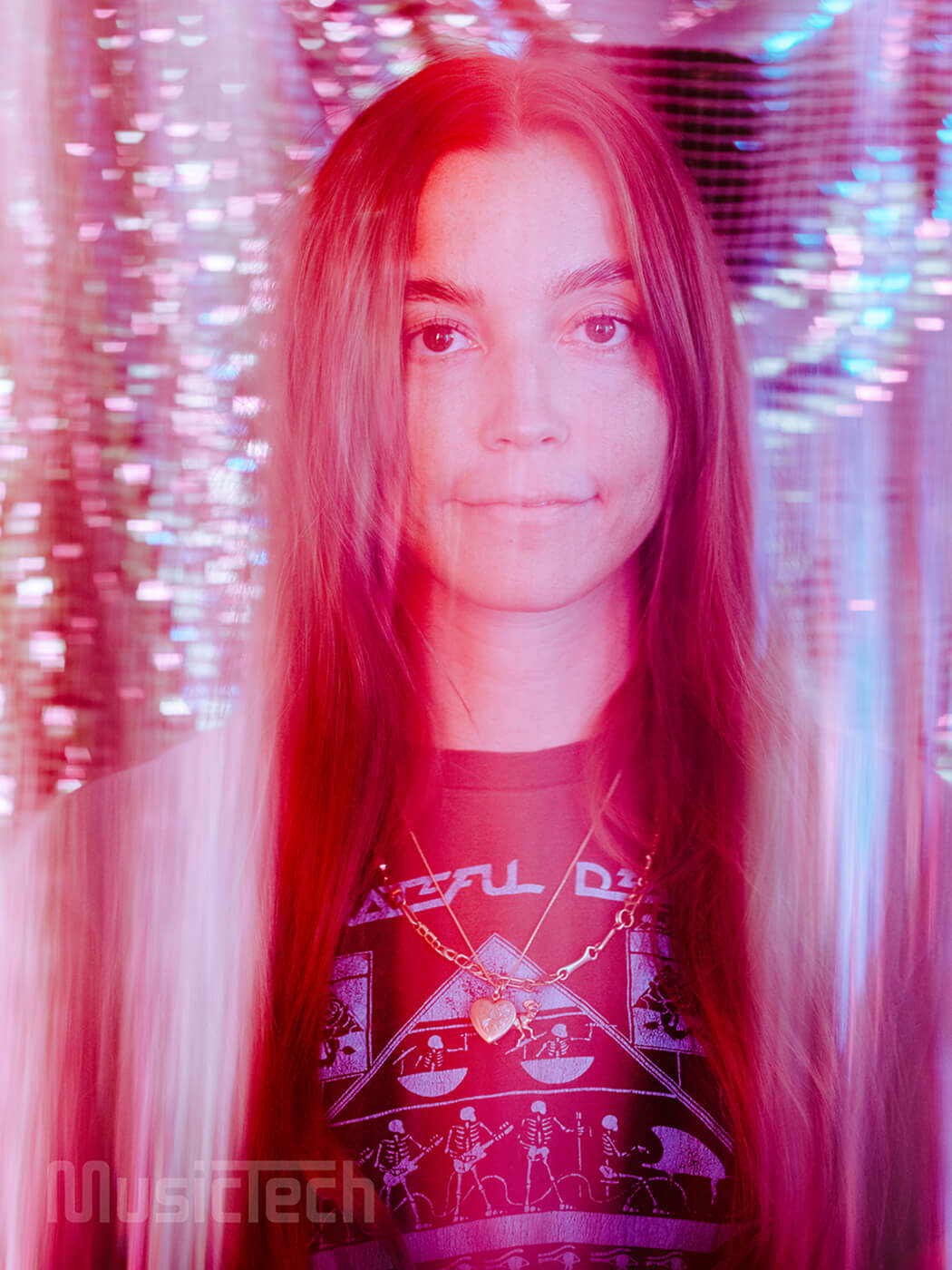
“In pursuing anything you want to do, belief is the most important currency. Belief makes you think it’s possible so you do all the work you need to do,” Giobbi says. “If you can find a mirror that reflects yourself that way, you’re going to be able to do anything.”
Horn provided that reflection to Giobbi for her expansion from traditional pianist to electronic musician when, at the age of 55, Horn went back to the University of Oregon to study electronic music. She was the only woman in her class and the only person over the age of 23.
“She ended up dominating. I think it’s intimidating to a lot of people if you walk into a space and you don’t see any people like you, but she was like ‘Bring it on,’” Giobbi says.
At that younger age, Giobbi wasn’t interested in electronic music (though she laughs about how her future was right in front of her), but now she realises the effect of Horn’s prowess.
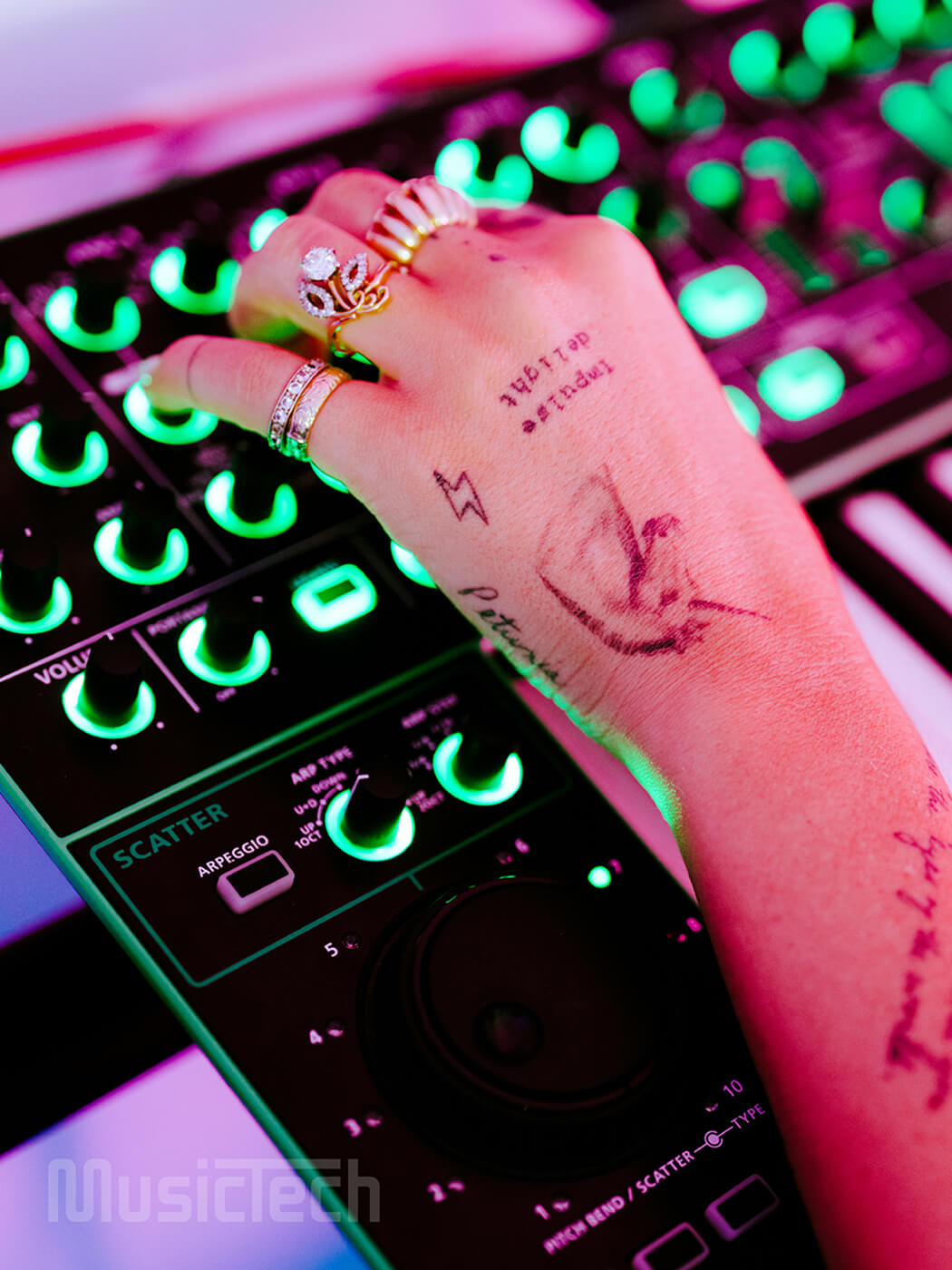
“Subconsciously that had a deep impact on me. Seeing someone who isn’t represented in the space going and dominating it,” Giobbi says.
Now with her massive success, so many young artists are seeing Giobbi in the electronic music space in the same way she saw Horn, but it certainly took time and hard work to reach that point. In fact, when discussing her first-ever DJ set, she plainly says:
“It was horrible. It was abysmal. I played the worst set ever.”
This set turned out to be another Light Place. Giobbi played an opening slot for a pair of artists who have believed in her from the start (and were also waiting backstage at her Coachella set): the alternative electronic duo Sofi Tukker.
Both members, Sophie Hawley-Weld and Tucker Halpern, loved Giobbi’s energy during her “horrible” set and invited her to go on tour with them. Giobbi rode around the US in a minivan with the duo and, along the way, they guided her to being a full-fledged electronic artist.
Hawley-Weld and Halpern offered Giobbi tips for DJing after each of her opening sets. Then when it came time for Giobbi to make her own music, they released her first tracks on their label, Animal Talk, while providing advice to refine her productions. Given her background in classical and jazz, this was a layered process for her.
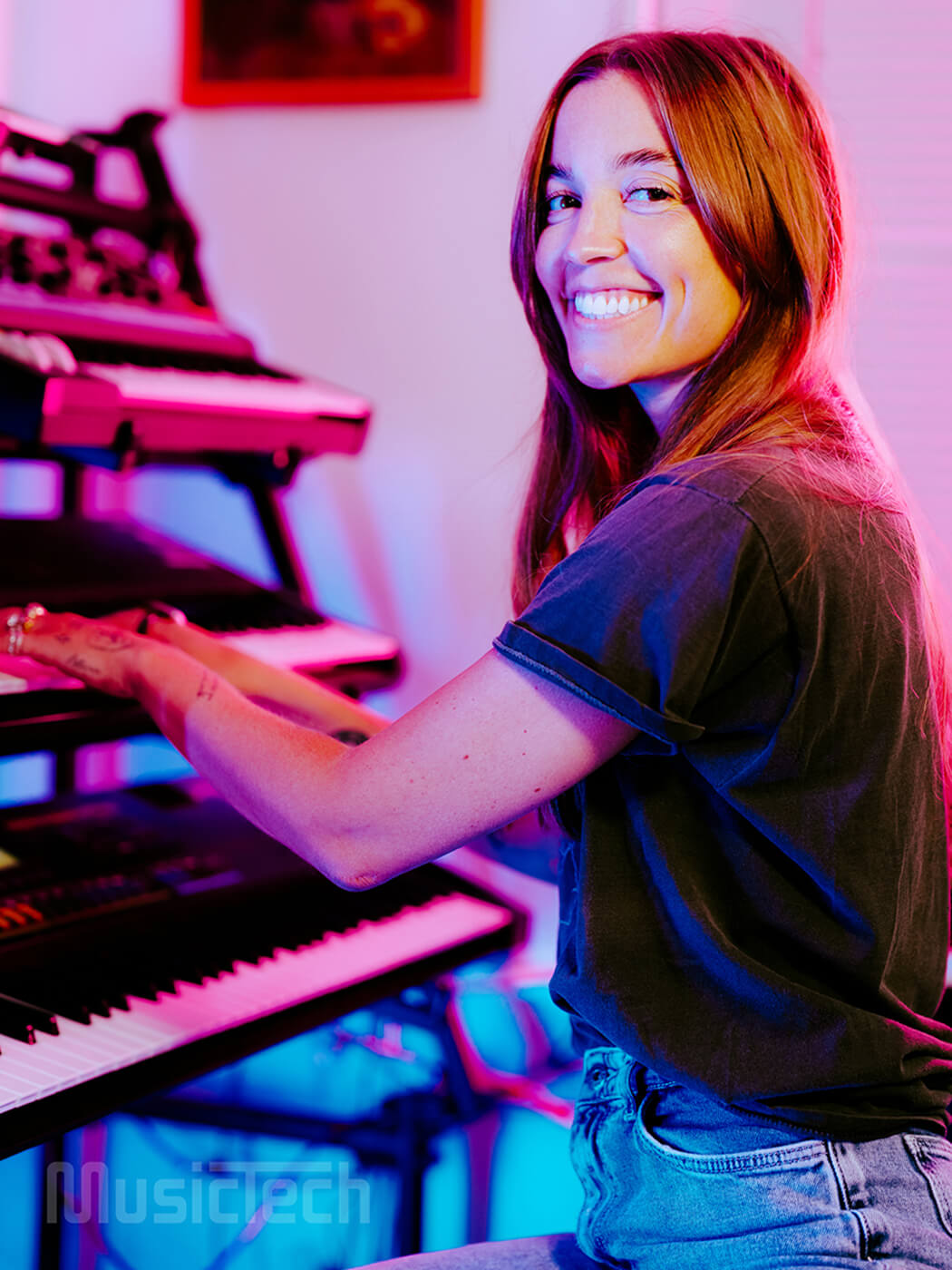
“Tucker kept telling me there was too much here. ‘Take out a lot of shit’,” Giobbi says. “When I first started making dance music I had to unlearn everything. Studying [music] in school, I had to theorise everything. I started intellectualising it instead of feeling it. When I trusted myself to feel it with my body, then I can start intentionally incorporating ninth chords and diminished chords, finding the right moments to build tension and resolve with jazz theory. It took me a few years to get there.”
With the gap now closed between her experience as a pianist and a producer, Giobbi brought her full range of influences into Light Places.
After the album was written in transit, she travelled to a studio in Paris to apply the finishing touches. There, she ran all the MIDI notes through vintage synths, and also incorporated guitars, like in the lead line of Follow The Loop. She built out melodic information with piano while layering live drums over electronic drums to combine her current affinity for “machine music” and her history with “non-machine music.”
One example of this union is found on the funky progressive cut Georgia the breakdown of which includes an epic call and response between high-flying drum fills and heavy synthetic lead lines.
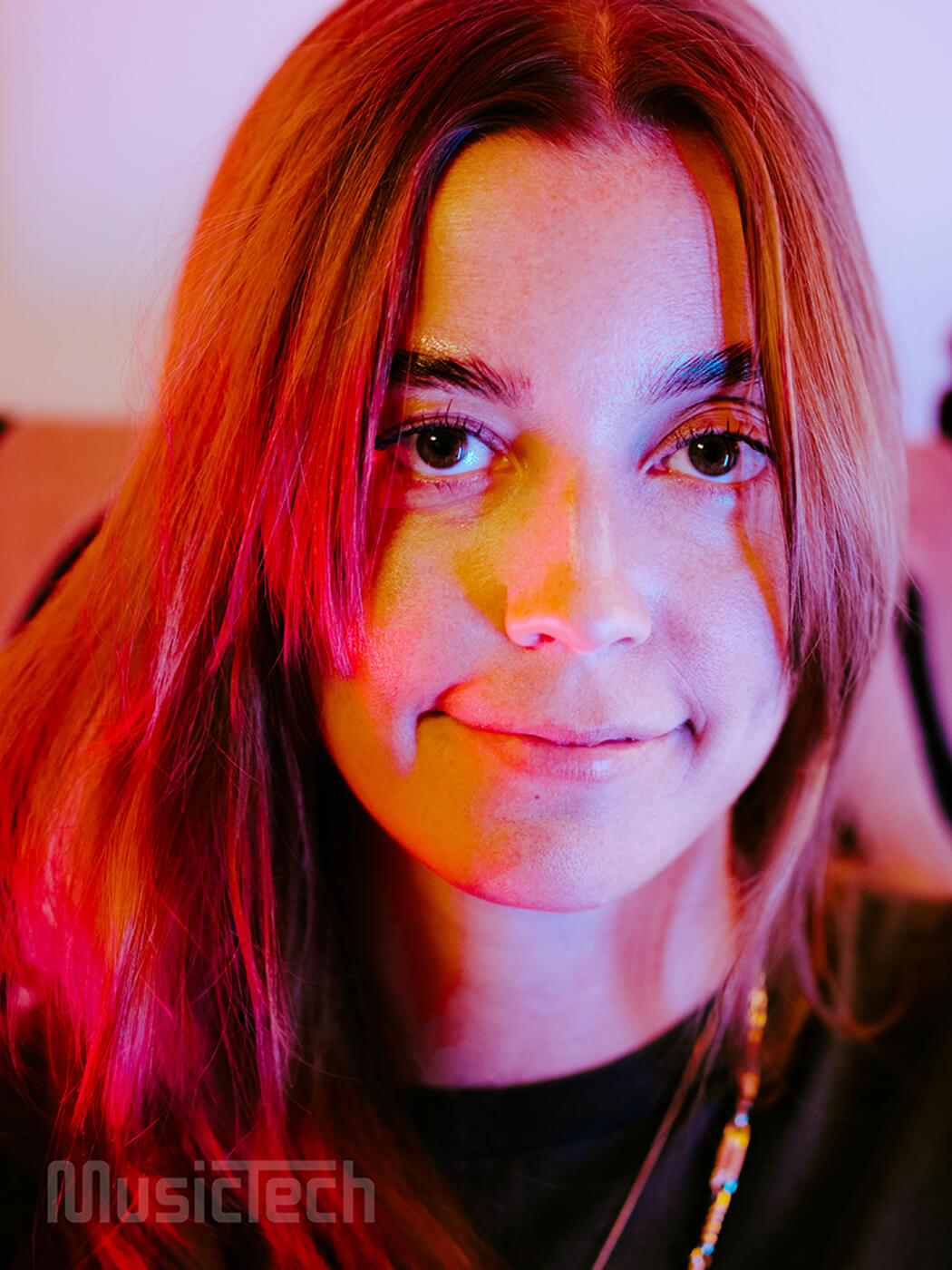
Another is the subtly melodic If Love Is A Skill, which coasts on Giobbi’s dextrous piano, leading to a highly affected electronic closing sequence. This one also features Hawley-Weld and Halpern as collaborators which, after years of being close friends and unbridled supporters, was their first official shared credit.
“People have come in and shaped my life in a massively wild, beautiful way and [that’s] the reason I wanted to start FEMME HOUSE. To pay that forward,” Giobbi says.
Co-founded in 2018 with Lauren A. Spalding, a.k.a. Hermixalot, FEMME HOUSE is a non-profit organization dedicated to creating opportunities for “women, gender-expansive, BIPOC, and LGBTQIA+ creatives in the technical and behind the scenes areas of music.”
Furthermore, FEMME HOUSE was, and still is, Giobbi’s “why.”
“[FEMME HOUSE] was the thing that got me up in the morning to sit in the studio and bang my head against the wall. Being a producer is a lonely experience. You’re alone in a dark studio. You’re isolated,” Giobbi says. “Building a community of other people learning how to do this makes the experience enjoyable and we need that for growth and happiness.”
And like so many other critical moments in her life, FEMME HOUSE was predicated by yet another Light Place, when the pandemic canceled all the in-person sessions they had just started hosting in LA.
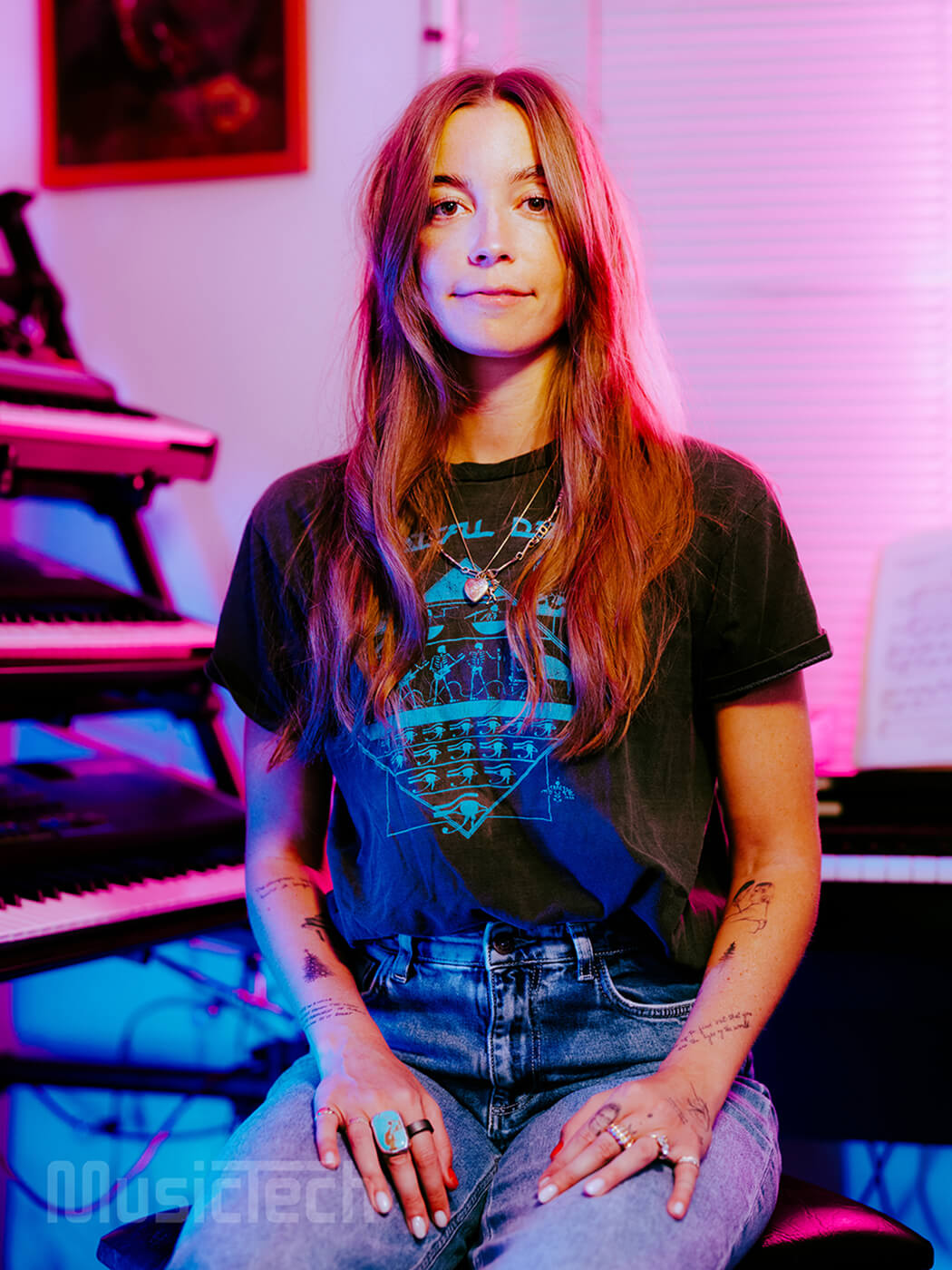
“[The pandemic] turned out the be the best thing ever because it forced us to go online,” Giobbi says. “When we did that our community expanded all over the fucking world.”
FEMME HOUSE partnered with Alicia Keys’ non-profit, She Is The Music, for their first online course and within two minutes 3,000 people signed up from numerous countries including Brazil, Mexico, and New Zealand.
FEMME HOUSE continues their online courses on topics like production and DJing in addition to having a weekly radio show on SiriusXM, FEMME HOUSE Radio, but post-pandemic restrictions, Giobbi is focusing on in-person activities with FEMME HOUSE like multi-city tours across the United States and stage takeovers at major events like EDC Las Vegas, booking only female and non-binary artists to perform.
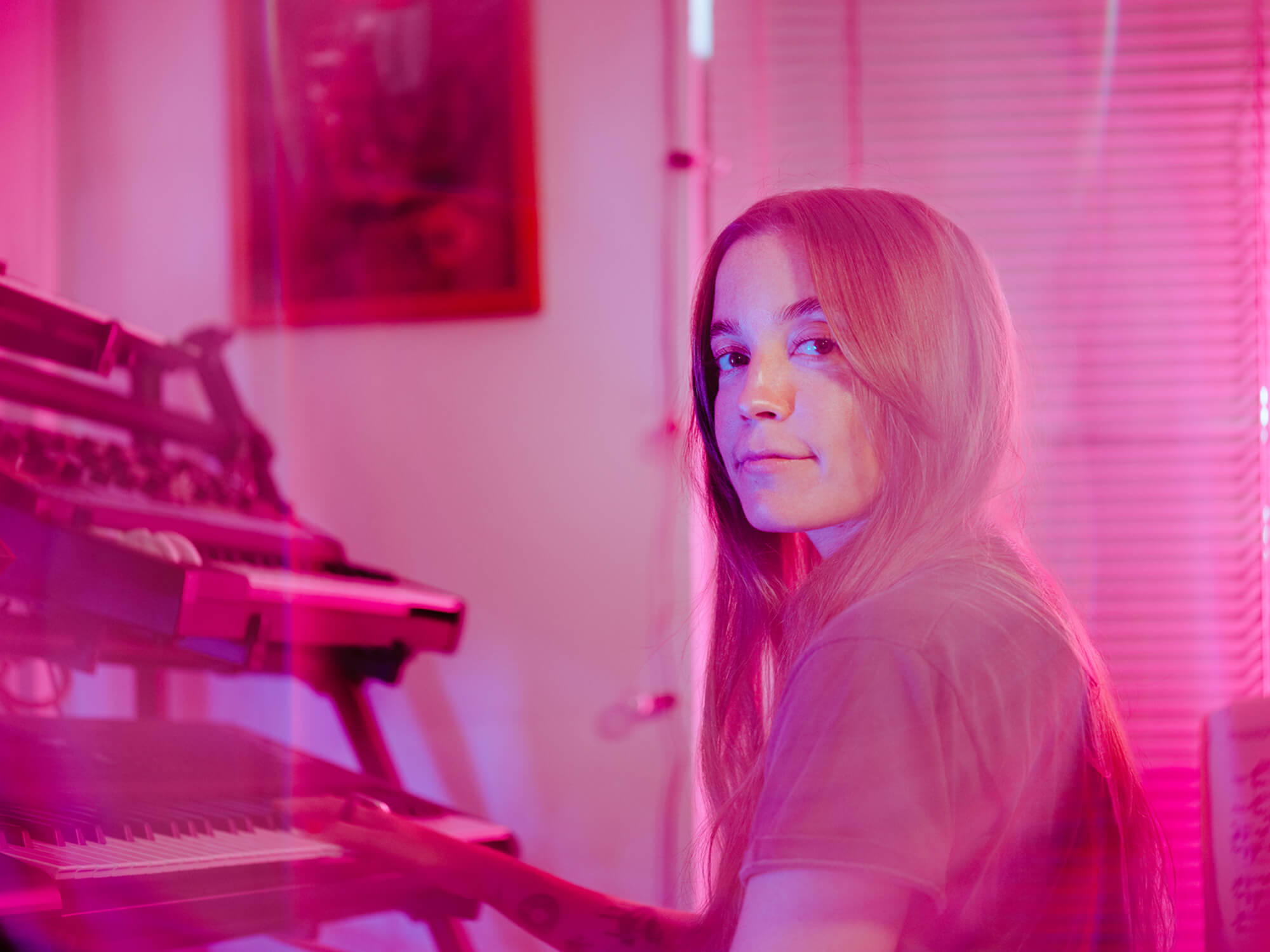
This is her chosen method of sharing the most important currency: belief.
“We believe that you can’t be what you can’t see. If you don’t see yourself represented, it may be a dream you didn’t know you had,” Giobbi says. “[We want] those attending the festival to subconsciously know that they can do anything, too.”
For all those attendees, Giobbi is, metaphorically, someone who rolled herself out of bed nursing a hangover to get into Coachella by 2pm. Giobbi believes in them, and for all those people she believes in, she wants nothing more than to help them find the light. Even if it’s in the strangest of places.
Listen to Light Places and learn more about FEMME HOUSE